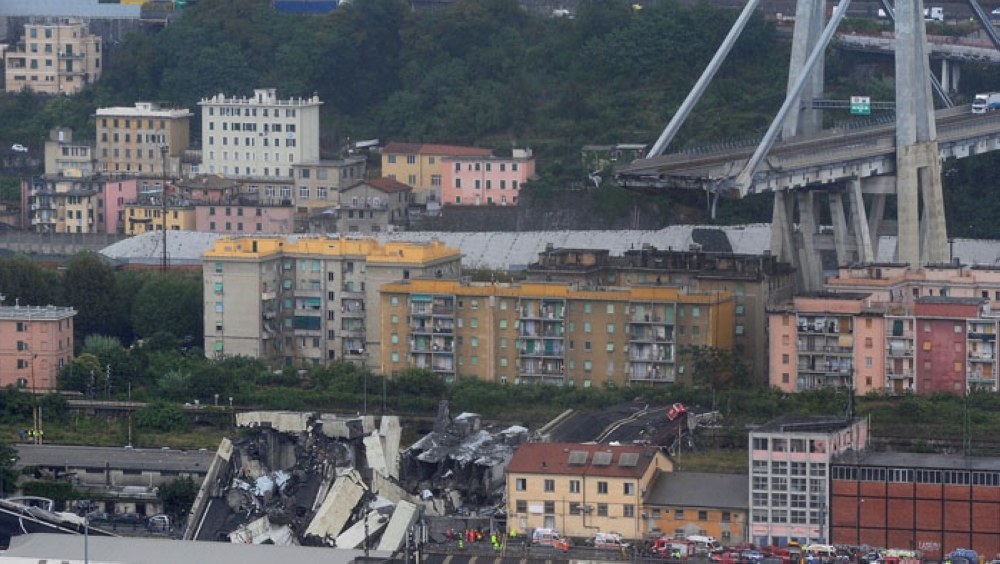Italy’s Atlantia rejects the idea of nationalising its Autostrade unit but does not exclude cooperation with state-controlled funds, its CEO said in his first interview after a deadly bridge collapse.
A bridge on the A10 motorway in Genoa run by Autostrade per l’Italia came crushing down on Aug. 14, killing 43 people.
The Italian government has since blamed Autostrade for serious oversights and launched a formal procedure to revoke its concessions.
Deputy Prime Minister Luigi Di Maio said on Monday that nationalisation was the only solution for Autostrade.
CEO Giovanni Castellucci, in an interview with La Repubblica newspaper, rejected the idea of giving up the unita utrostade.
“Autostrade is part of the historical heritage of Atlantia, of which it is the most important asset. There are no other scenarios (on the table),” Castellucci said in the interview published on Wednesday.
Autostrade, which runs 3,000 kilometres (1,964 miles) of highways in Italy, accounts for more than 60 percent of its parent company’s core earnings.
Castellucci said nationalising Autostrade would be a return to the past.
Autostrade per l’Italia, which was privatised by the Italian government in 1999, is currently 88 percent owned by Atlantia which in turn is controlled by the Benetton family. Other investors are Allianz SE and China’s Silk Road Fund.
Two sources told Reuters last week that Italy’s ruling coalition was considering the idea of state-run Cassa Depositi e Prestiti (CDP) buying into Autostrade as a way for the state to regain control of the asset.
The Italian Treasury, which controls CDP, has said it is not aware of any such plans. “There is no plan, no contact (over CDP)… However I can say that cooperation with institutional investment funds, even linked to governments… is in our DNA,” Castellucci said.
CDP already provides funding for Atlantia, including a 1.7 billion euro ($2 billion) loan to its Autostrade unit last year to bankroll investments on the road network.
A tie-up between CDP and Atlantia could be a way to avoid nationalisation, widely seen as a painful option for the group and legally complicated for the government.
“Many have talked about nationalisation, highlighting the contradiction of a return to the past,” Castellucci said.
Asked if he had considered resigning, the CEO said he was focused on resolving the emergency situation in Genoa and at Autostrade.






